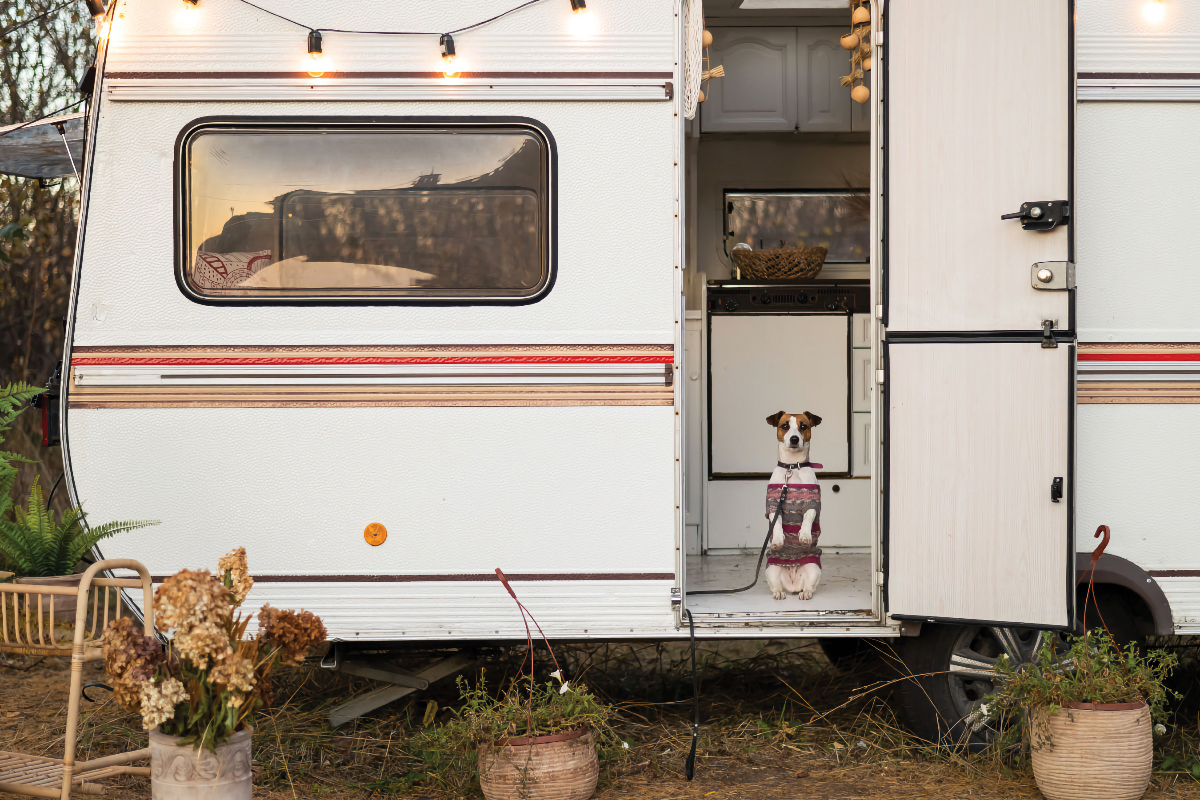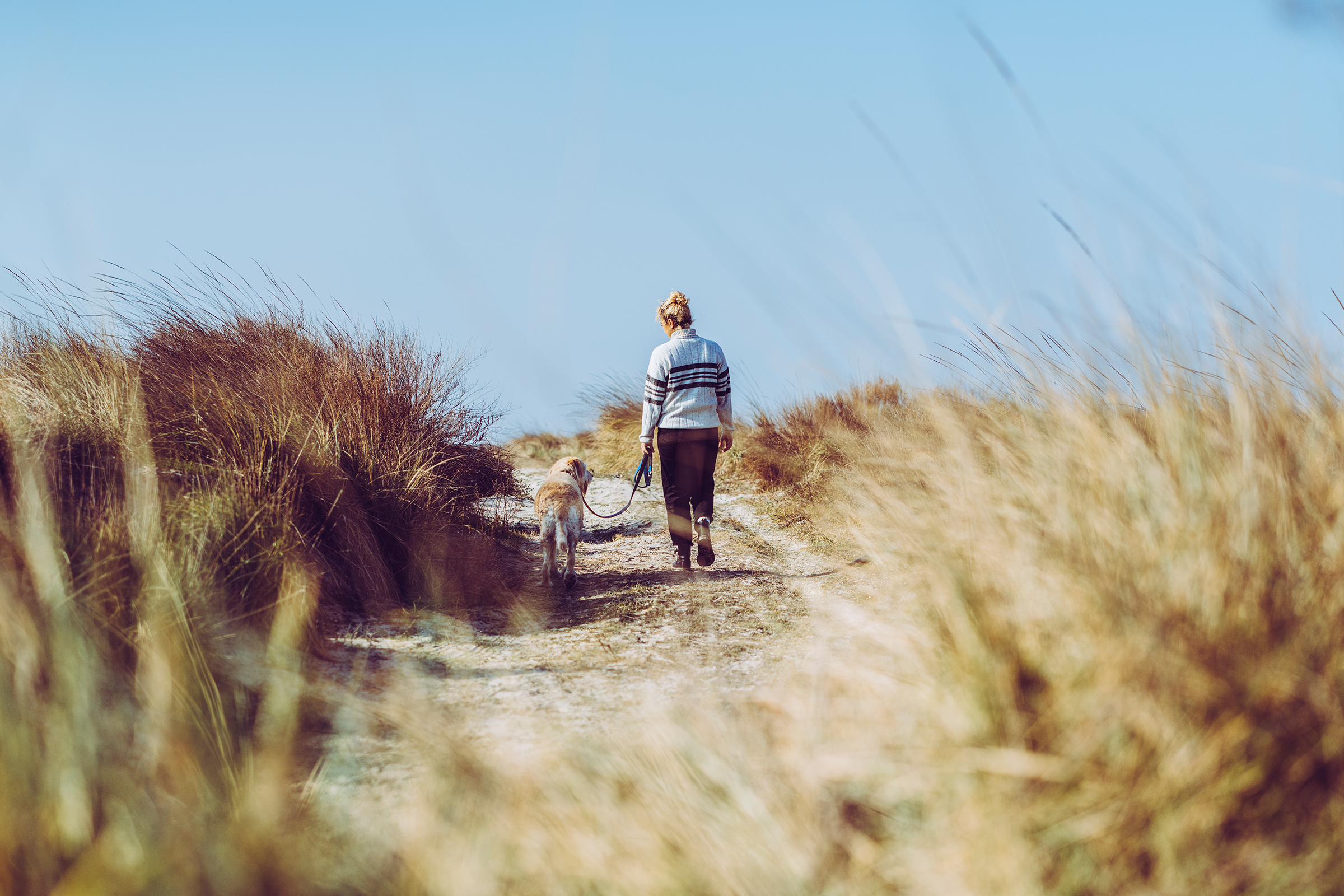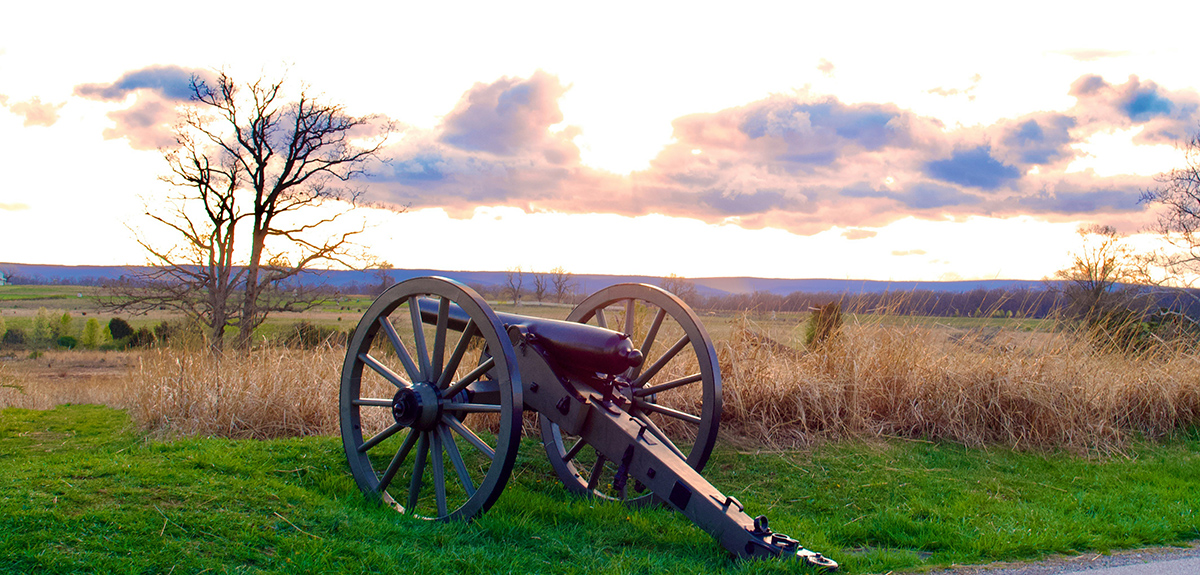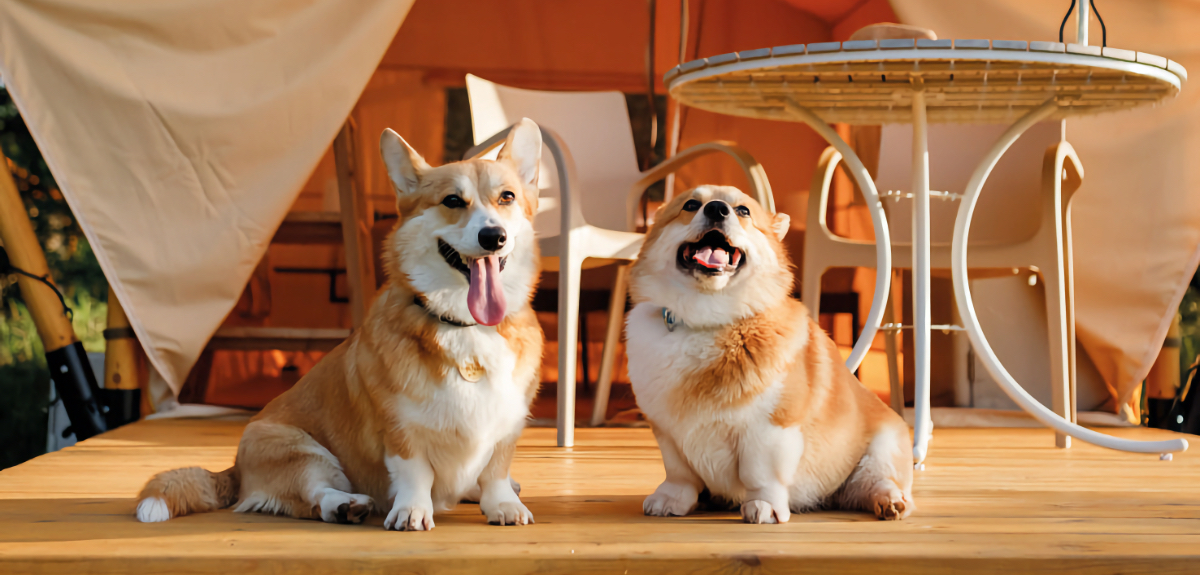RVs + Pets: Young at Heart
With a Little Patience, Understanding, and Some Reward Treats, You Can Teach an Old Dog New Tricks
Image Caption: Photo Credit: FIRN/Getty
Our traveling family of four has been through many adjustments in the last year. We had to say goodbye to our friend Digby Pancake after almost 13 years. And we also welcomed a new family member, Fruitycake, to our home on wheels. But our dog Peanut Butter Brickle, who is almost 14 years old, has had to make many adjustments of his own.
It became necessary last year to evaluate our travel schedule and to make sure that we are doing all we can to keep Brickle healthy, happy, stress-free, and motivated to move. We have noticed reduced mobility, reduced eyesight, and other little signs of aging that we all will face. We have had to reduce the miles of our hikes, but we make sure that every mile is enjoyable for Brickle and that we have a goal, such as a waterfall, an overlook, or a special reward treat.
Many think that as our dogs get older that they are set in their routines, personalities, likes, and dislikes. But as this is a new year, it is a great time to reflect on what we can do to make our older dogs love travel, love life, and want to get up each morning. Brickle has taught me, especially in this last year, that you can teach an old dog new tricks. And our dogs want to learn and teach us in the process. Yes, you can learn new tricks, too!
Travel
I truly believe that traveling in an RV has added many years to our dogs’ lives. Travel gives them purpose, excitement, and motivation. We all need that! But perhaps your dog is not a seasoned traveler, and you are nervous about different aspects of travel. We faced this dilemma with Brickle at the beginning of our travels. He was younger and needed more exercise, was more protective of our campsite, and did not respond well to voice commands. As he has aged in years, however, he has become more accepting of attention, responsive to voice commands, and rarely barks at others.
I believe this is due to his level of confidence, which has grown with travel since the beginning. If you have been reluctant to try traveling with your dog in an RV, don’t think that your older dog will not like it or would rather sit on a couch all day. Give her an opportunity to try it, to experience a new routine, even for a weekend. If you don’t have an RV, you can rent a dog-friendly one through Good Sam RV Rentals and even have it delivered. Adventure is something your older dog may embrace, and you may truly see the puppy you miss come out once again.

Photo Credit: Inside-Studios/Getty
Mealtime
Brickle was a picky eater from day one when we adopted him from our local animal shelter. For years, he refused most vegetables and fruit. But in this last year, I decided to still try new vegetables in his meals. I was amazed when he gobbled up new vegetables like spinach, probiotic-rich foods like homemade sauerkraut, and even kefir. Now, I introduce a new vegetable or fruit into his meals each week. Not only does it keep him healthy, but fresh food is a new experience in a bowl each week! I love seeing him enjoy new foods, and I never thought his appetite would change, but it did!
Exercise
We all know the importance of keeping active as we get older. It is so easy to focus on our aches and pains and discount the need for physical activity. Our dogs cannot voice their aches and pains, so it is up to us to notice the signs of pain and discomfort. Every dog is different, and not every activity will be right for your dog. Part of the fun is trying out new activities in moderation to see what your dog enjoys.
Our dogs love hiking. Hiking gives them new smells, sights, and opportunities to use their skills, unlike any other activity. But as Brickle has aged, his abilities to navigate over boulders or slippery surfaces have diminished. We recently started using a harness to lift him when there are too many stairs or for emergencies. We use stairs to get him in and out of our truck and a ramp for our RV. We check each hiking trail for reviews, terrains, and difficulty levels ahead of time. But there are days that he simply would like to take it easier. Sometimes, just taking a drive and getting out at a park to roll around in the grass is all he wants to do. And that is okay. We alternate activities to see which ones he embraces.

Photo Credit: FIRN/Getty
Actual Tricks
Cognitive decline is worrisome for dog parents as our fur kids get older. Keeping their minds as well as their body active is important. So if you are looking to spend extra time with your dog and have some fun with a lot of treats on hand, consider teaching your dog actual new tricks. As research shows that older dogs take longer to learn than younger dogs, have patience, understanding, and, again … extra treats! The easiest tricks for dogs to learn are to sit, shake, and stay.
Your dog already knows these? Try fetch, sing, kiss, or high-five! The beauty of our dogs aging is that we know them better, and we are more appreciative of them as individuals. Although our travel schedule has slowed down, we do not waste a minute of our time with Brickle and Fruitycake. Losing Digby was one of the hardest experiences of my life. Yet, when I look back at our time together, I will never regret one minute of our RV life. It gave us the opportunity to see him as the wonderful soul he was.
Travel is one of the greatest gifts we can give to ourselves and to our senior dogs. You can teach an old dog new tricks! And you can have a wonderful life together while doing so. Make this the year you show your older dog she has more to give and more life to live!
Tips for Teaching Your Old Dog New Tricks
- Recognize and respect your dog’s limits.
- Keep training sessions short.
- Use positive reinforcement.
- Start with one trick at a time.
- Be consistent yet patient.
- Associate new places and meeting new people with learning a new trick. When her usual environment changes, she will be more receptive to learning new things.




